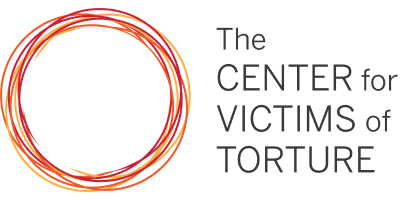Michael Kamau is a psychotherapist/trainer at CVT Kakuma.
Today natural disasters and violence occur at a pace which far surpasses the resources available to deal with the effects. A recent summit in Houston, Texas, provided an excellent opportunity to delve into this global crisis further. “Trauma and Peace Building,” hosted by the World Federation for Mental Health (WFMH), facilitated an exchange of recommendations for policies on the issue for governments and international nongovernmental organizations (INGOs) like CVT. I was fortunate enough to attend, both as a participant and WFMH board member.
During the small group discussions at the summit, I spoke about CVT’s expertise in capacity building, specifically how the organization trains paraprofessionals to become healers of trauma. I emphasized CVT’s implementation of the mental health (MH) gap strategy – bridging the gap in the provision of mental health services, especially in developing countries – in training MH health workers. I also had a chance to discuss my history with the organization, which began in April 2002, when I joined CVT’s Sierra Leone program – and later, Liberia – as a mental health clinician/trainer.
CVT once partnered with the Milton Margai College of Education and Technology, where I supported an accreditation training for psychosocial counselors (PSCs). During my tenure, 80 local PSCs graduated with diplomas and certificates in psychosocial counseling. As CVT prepared to exit West Africa in 2008, I coached and mentored national staff in starting their own local programs in Sierra Leone and Liberia. This work was later supported by CVT’s Partners in Trauma Healing (PATH) project, and served as an example at the summit of successful capacity building. Even though CVT no longer works in West Africa, our efforts there were sustainable and helped the communities there become more trauma-informed.
The work I completed in West Africa eventually allowed me to fulfill my dream of working with CVT back home, in Kenya. I joined CVT’s Dadaab program in 2012. Now, in Kakuma, home to CVT’s newest location, I continue to do what I’m passionate about, capacity building, by helping paraprofessionals acquire the knowledge and skills necessary to empower survivors. Imparting my wisdom and expertise to PSCs, and seeing survivors of torture and trauma begin functioning again, motivates me to keep working harder.
Over the years, I’ve heard thousands of things from my clients – words of joy, accomplishments, stories of transformation, renewal, learning to live again. And these are the things that keep me strong and encourage me in the midst of work that is sometimes incredibly draining. CVT has changed lives, made thousands become trauma-informed, brought peace into people’s hearts, their families, their communities and the world. I’m thrilled to be a part of that work, and to share that work with others intent on making the world a peaceful place.
